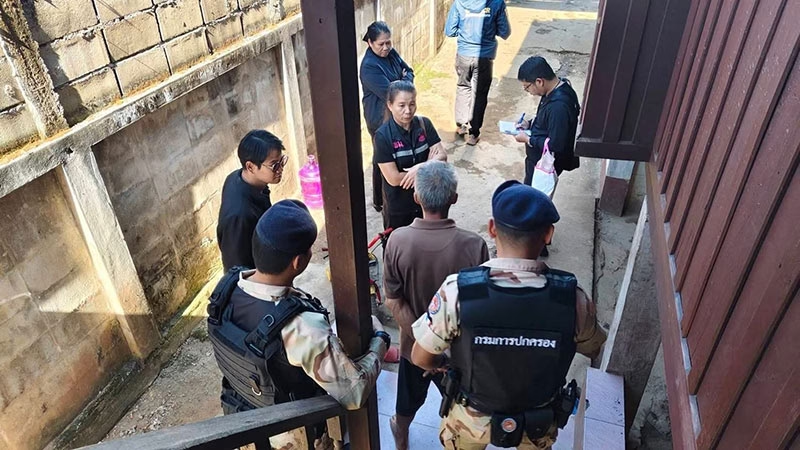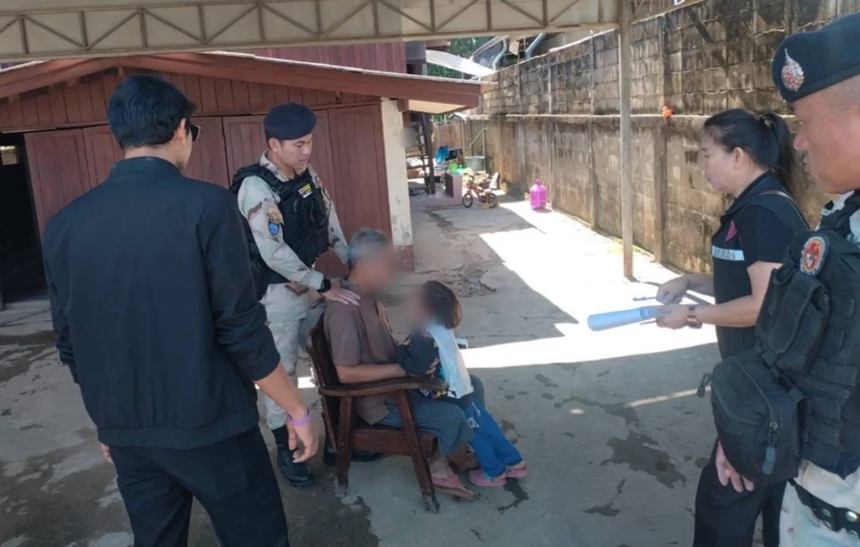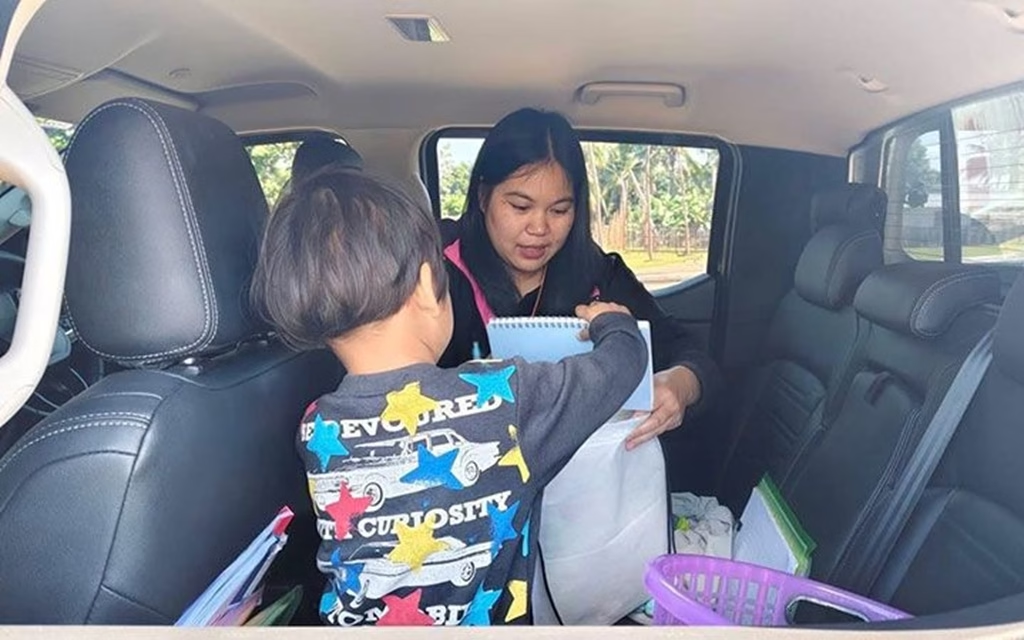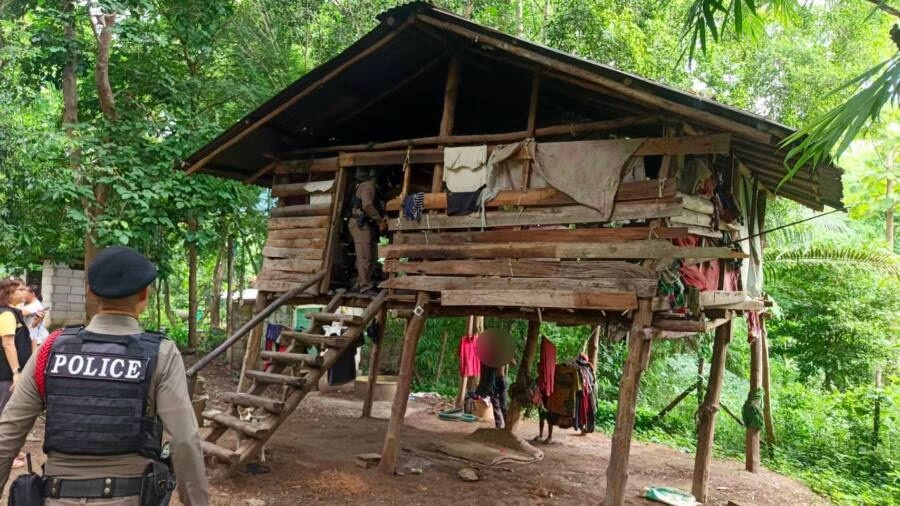CHIANG RAI – Officials in Chiang Rai have stepped in to help a four‑year‑old girl who was living alone with her father, who regularly used methamphetamine, while her mother is serving a prison sentence.
On Friday, Mr Winai Kengsuwan, Chiang Rai Provincial Social Development and Human Security Officer, and the Chiang Rai Home for Children and Families to carry out an inspection at a house in Pa Sang Subdistrict, Mae Chan District.
The operation was led by Mr Kongrob Krathumnat, Chiang Rai Provincial Security Chief, following a complaint that a four‑year‑old girl was living alone with her drug addicted father in the house.

The father was said to regularly use methamphetamine, while the child’s mother is currently incarcerated, raising concern that the girl might not be receiving proper care.
During the inspection, officers found Mr Somsak (surname withheld), aged 54, at the house, along with his four‑year‑old daughter, referred to as “A” (alias). Mr Somsak confirmed that he lived there alone with his daughter because his wife was serving a prison sentence.
He admitted that he used methamphetamine regularly, but claimed he had never physically harmed his daughter.
Neighbours told officials that Mr Somsak often neglected the child and did not look after her properly. They said he frequently left her to wander around the village on her own, and that she had previously been bitten by a dog while walking alone.
Officers carried out a urine test on Mr Somsak, and the result came back positive for methamphetamine (a type of amphetamine). He was then taken into a rehabilitation process for drug treatment.
The girl, “A” (alias), has been placed under protection in line with the Child Protection Act B.E. 2546 (2003), and is now in the care of the Chiang Rai Home for Children and Families.
Drug Addiction in Chiang Rai
Chiang Rai Province sits in northern Thailand, close to the borders with Myanmar and Laos. Its location makes it a key entry point to the Golden Triangle, a long-known centre for drug production and trafficking. This geographic position has made it a hotspot for methamphetamine (locally known as yaba or crystal meth, or ICE) addiction, which is the dominant substance of abuse in the region.
While exact current prevalence rates specific to Chiang Rai are limited due to underreporting and stigma, studies from the past decade indicate that methamphetamine use affects up to 14-15% of hill tribe youths (aged 15-24) in the province, particularly among ethnic minorities like the Akha and Lahu communities.
These groups, often living in remote villages with limited access to education and economic opportunities, face heightened vulnerability due to poverty, family instability, and easy cross-border drug access. Nationally, methamphetamine accounts for over 80% of treatment admissions for substance abuse in Thailand, with northern provinces like Chiang Rai bearing a disproportionate burden.
The crisis has intensified in recent years, with police seizures of methamphetamine pills surging 172% in Chiang Rai compared to 2023 levels as of November 2025. This reflects not just trafficking but entrenched local use, driven by factors like unemployment, peer pressure, and historical opium trade legacies among hill tribes. Schools in the province conduct random urine tests on students, underscoring the problem’s infiltration into youth culture.
















